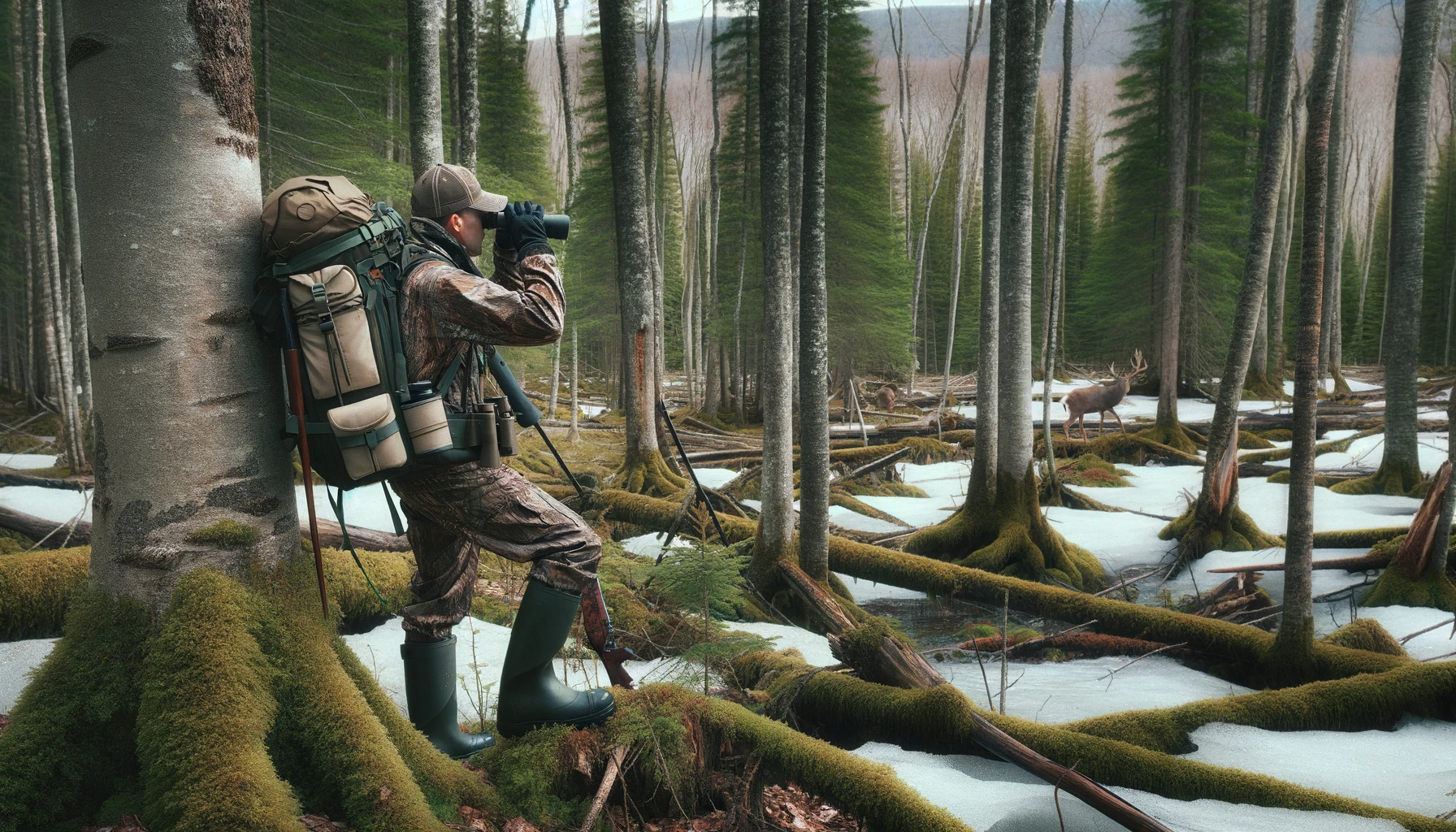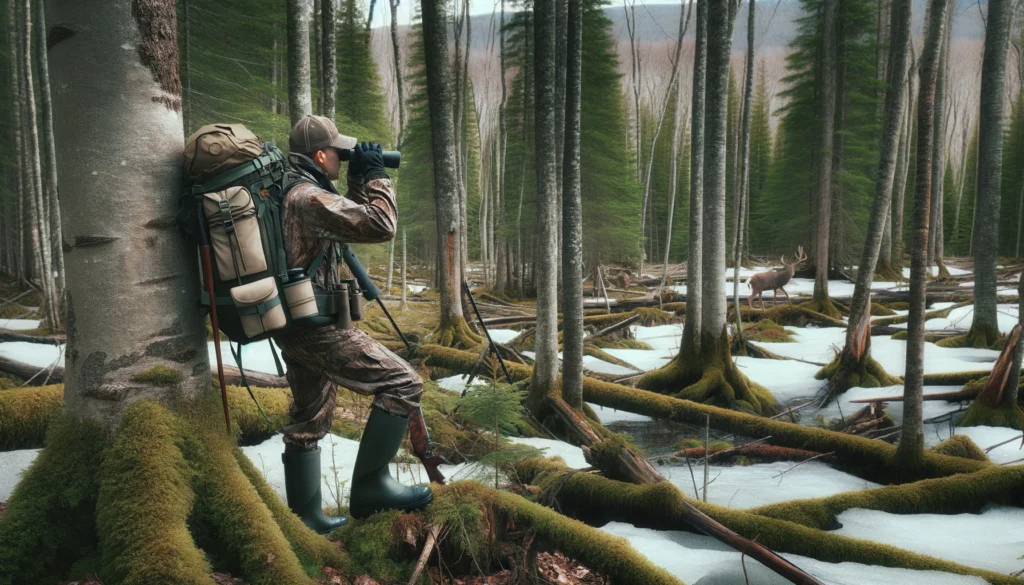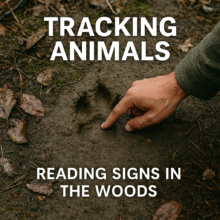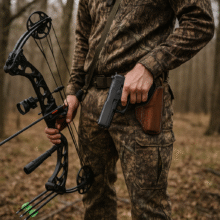Navigating the Ethics of Shed Hunting: A Responsible Approach


Table of Contents
- Introduction
- Understanding the Impact on Wildlife
- Respecting Private Property and Regulations
- Promoting Conservation and Education
- Ethical Considerations in the Field
- Balancing Ecosystem Health with Recreational Activity
- Community Engagement and Ethical Advocacy
- The Role of Technology in Ethical Shed Hunting
- Personal Growth and Connection to Nature
- Balancing Ecosystem Health with Recreational Activity
- Community Engagement and Ethical Advocacy
- The Role of Technology in Ethical Shed Hunting
- Personal Growth and Connection to Nature
- Conclusion
- Frequently Asked Questions (FAQs)
Introduction
Shed hunting, the practice of searching for antlers that have naturally fallen from deer, elk, and other antlered animals, has grown in popularity among outdoor enthusiasts, wildlife photographers, and hunters alike. While this activity can be a rewarding way to connect with nature and scout for future hunting seasons, it also raises important ethical considerations. This guide explores the ethics of shed hunting, offering insights into how enthusiasts can enjoy this pursuit responsibly.
Understanding the Impact on Wildlife
Minimizing Disturbance
Wildlife, especially in late winter and early spring when sheds are typically collected, may be in a vulnerable state, conserving energy to survive the cold months. Shed hunters must be mindful of their presence in the wilderness to avoid causing undue stress to animals.
Habitat Preservation
The ecosystems that support antlered game are delicate. Shed hunters should stick to established trails and avoid trampling vegetation or disturbing nesting areas to ensure these habitats remain intact for future generations.
Respecting Private Property and Regulations
Securing Permissions
Always obtain permission before entering private land. Respecting landowner rights is a fundamental aspect of ethical shed hunting.
Adhering to Laws and Seasons
Familiarize yourself with local regulations regarding shed hunting. Some areas may have specific seasons or restrictions to protect wildlife during vulnerable periods.
Promoting Conservation and Education
Contribution to Science
Collecting sheds can contribute to wildlife management and research efforts if done in coordination with local wildlife agencies. Reporting findings and participating in community science projects can aid in the study of animal health and population trends.
Educational Opportunities
Shed hunting offers a unique opportunity to learn about the life cycles of antlered animals, their habits, and their habitats. Sharing this knowledge, especially with young enthusiasts, fosters a deeper appreciation for wildlife and the importance of conservation.
Ethical Considerations in the Field
Leave No Trace
Adopting a “leave no trace” ethic ensures that your shed hunting activities do not negatively impact the environment. Pack out all trash, minimize your footprint, and leave sheds that are not legally collectible where you found them.
Use of Technology and Tools
While technology, such as drones, can make shed hunting easier, consider the fair chase ethics. Using such tools may give shed hunters an undue advantage and can potentially stress wildlife. Use technology judiciously and within the bounds of regulations.
In areas where shed hunting is highly competitive, consider the impact of collecting large quantities of sheds. Sharing discoveries and leaving some sheds for others can help maintain a balance and ensure that many people have the opportunity to enjoy shed hunting.
Balancing Ecosystem Health with Recreational Activity
Understanding Ecological Sensitivity
- Recognize the ecological sensitivity of the areas you explore. Late winter and early spring are times when the flora and fauna are most vulnerable. Treading lightly and causing minimal disturbance helps preserve the natural balance.
Avoiding Prime Wildlife Areas During Critical Times
- Wildlife may congregate in specific areas that provide shelter and food during the harsh winter months. While these spots may be tempting for shed hunters, it’s crucial to avoid them during critical periods to prevent stressing the animals.
Community Engagement and Ethical Advocacy
Promoting Ethical Shed Hunting Within the Community
- Lead by example and advocate for ethical practices within the shed hunting community. Whether through social media, local clubs, or outdoor education programs, sharing knowledge and experiences can cultivate a culture of respect and conservation.
Volunteering for Habitat Improvement Projects
- Participate in or organize habitat improvement projects that benefit the wildlife you enjoy observing. This can include planting native vegetation, removing invasive species, or participating in trash clean-up efforts in wildlife areas.
The Role of Technology in Ethical Shed Hunting
Ethical Use of Drones and Other Devices
- While drones can cover large areas quickly, their use can be controversial and may disturb wildlife. If you choose to use technology, do so in a way that minimizes the impact on animals and adheres to local regulations.
Data Sharing for Conservation Efforts
- Use technology to contribute to conservation science. Sharing GPS data on shed locations with wildlife researchers can provide valuable information on animal movements and habitat use without disclosing specifics to the general public.
Personal Growth and Connection to Nature
Fostering a Deep Appreciation for the Wilderness
- Shed hunting offers a unique opportunity to connect with the natural world. Let these experiences deepen your appreciation for the wilderness and its inhabitants, fostering a lifelong commitment to conservation.
Reflective Practice: Balancing Goals with Conservation
- Regularly reflect on your practices and their impacts. Consider how your actions align with broader conservation goals, and be willing to adjust your approach for the greater good of the ecosystem.
Balancing Ecosystem Health with Recreational Activity
Understanding Ecological Sensitivity
- Recognize the ecological sensitivity of the areas you explore. Late winter and early spring are times when the flora and fauna are most vulnerable. Treading lightly and causing minimal disturbance helps preserve the natural balance.
Avoiding Prime Wildlife Areas During Critical Times
- Wildlife may congregate in specific areas that provide shelter and food during the harsh winter months. While these spots may be tempting for shed hunters, it’s crucial to avoid them during critical periods to prevent stressing the animals.
Community Engagement and Ethical Advocacy
Promoting Ethical Shed Hunting Within the Community
- Lead by example and advocate for ethical practices within the shed hunting community. Whether through social media, local clubs, or outdoor education programs, sharing knowledge and experiences can cultivate a culture of respect and conservation.
Volunteering for Habitat Improvement Projects
- Participate in or organize habitat improvement projects that benefit the wildlife you enjoy observing. This can include planting native vegetation, removing invasive species, or participating in trash clean-up efforts in wildlife areas.
The Role of Technology in Ethical Shed Hunting
Ethical Use of Drones and Other Devices
- While drones can cover large areas quickly, their use can be controversial and may disturb wildlife. If you choose to use technology, do so in a way that minimizes the impact on animals and adheres to local regulations.
Data Sharing for Conservation Efforts
- Use technology to contribute to conservation science. Sharing GPS data on shed locations with wildlife researchers can provide valuable information on animal movements and habitat use without disclosing specifics to the general public.
Personal Growth and Connection to Nature
Fostering a Deep Appreciation for the Wilderness
- Shed hunting offers a unique opportunity to connect with the natural world. Let these experiences deepen your appreciation for the wilderness and its inhabitants, fostering a lifelong commitment to conservation.
Reflective Practice: Balancing Goals with Conservation
- Regularly reflect on your practices and their impacts. Consider how your actions align with broader conservation goals, and be willing to adjust your approach for the greater good of the ecosystem.
Conclusion
Shed hunting, when practiced ethically, can be a sustainable outdoor activity that encourages wildlife appreciation and conservation. By understanding the impact on wildlife, respecting private property and regulations, and promoting conservation, shed hunters can ensure this activity remains a rewarding pursuit for all involved. As the community grows, so does the responsibility to uphold these ethical standards, safeguarding the tradition for future generations.
Frequently Asked Questions (FAQs)
1. Is shed hunting harmful to wildlife?
When practiced responsibly and ethically, shed hunting has minimal impact on wildlife. However, causing stress to animals by approaching too closely or disturbing their habitat can be harmful.
2. Can I sell the antlers I find?
Laws regarding the sale of found antlers vary by region. Check local regulations before selling any sheds you collect.
3. How can I find out about shed hunting regulations in my area?
Consult your local wildlife agency or conservation department’s website for the most current regulations and guidelines on shed hunting.
4. What’s the best time to go shed hunting?
The best time varies by region but typically is late winter to early spring, after antlered animals have shed their antlers but before the full onset of spring vegetation.
5. How can shed hunting contribute to conservation?
Shed hunting can contribute to conservation through the ethical practice of the activity, participation in scientific research, and by using sheds to educate others about wildlife and habitat conservation.







